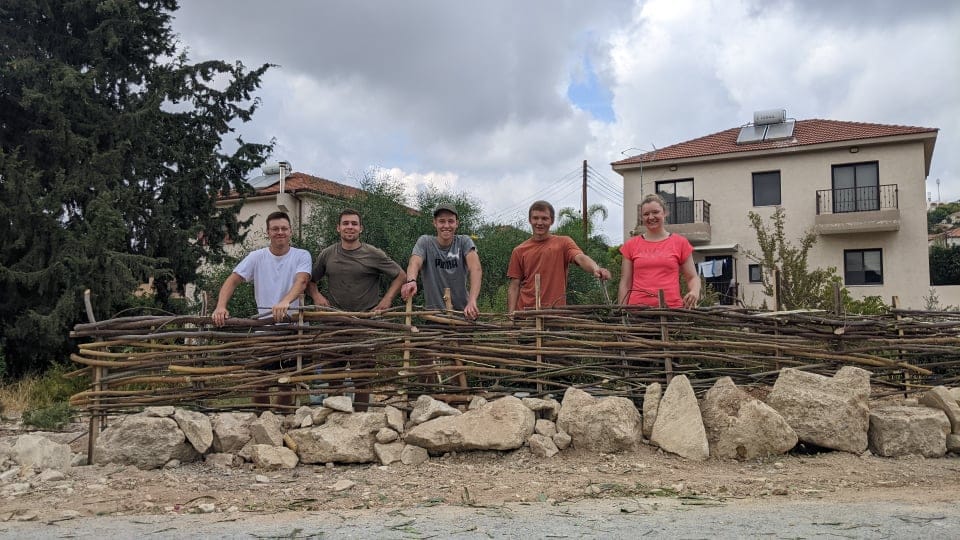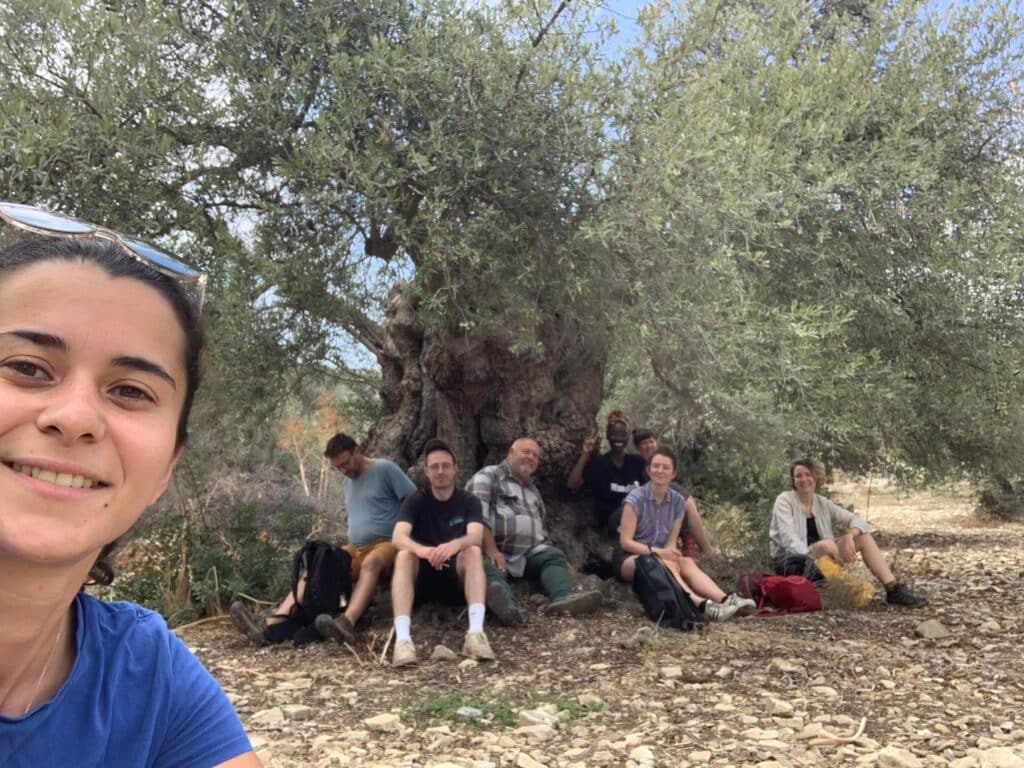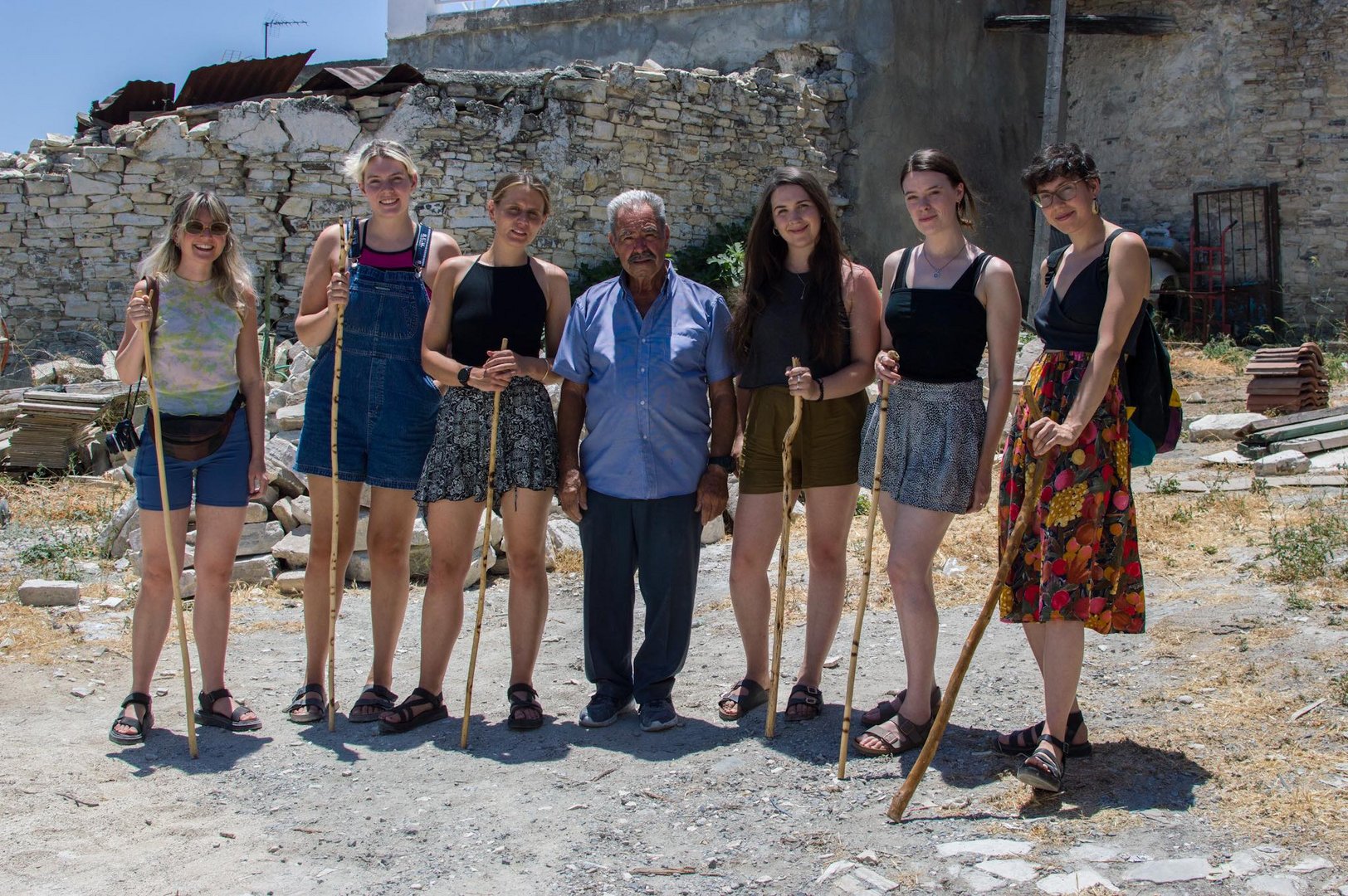By Martin Clark
The incredibly diverse nature of the Cypriot countryside and villages is due to physical geography in the first instance, with the island’s position on the edge of the European, Asian and African tectonic plates. Cyprus has plants and birds from all three continents – it used to have more – when people first came here, sailing from nowadays Anatolia, they rubbed shoulders with pygmy hippopotami and elephants!
The geography also boasts a unique geology, with rocks formed from lava that spewed from the gaps between the continental plates under the sea and lots of uplifted rocks from the mountain building phase of the island’s birth. The volcanic activity also created the copper bearing rocks that led to the importance of Cyprus in the Copper Age (about 5,500 years ago).
To the Greeks and the Romans and then Mediaeval people, Cyprus was a source of pigments for painting and decoration. Terra verdae (a green stone) and umber (rich brown) were much used and even today, if you buy ‘ground umber’ for painting with, it almost certainly originated in Cyprus. Leonardo da Vinci did all his under-painting with umber; it’s probably one of the reasons he came here.
When we talk about smelting copper and painting, we move from nature to culture – the two are inter-linked. Just as Cyprus has birds and plants from three continents, it also takes its culture from Europe, Asia and Africa. Different waves of conquerors and settlers came for 10,000 years.

German forestry students from Saxony building a ‘natural fence’ around a community tree planting project
I’m a very strong advocate of culture and nature being managed together by the same agency; in most European states, this happens.
Questions arise because Cyprus’ culture and nature is not being managed very well… I’m not pointing the finger; the fault lies with society, and it’s the same all over Europe.
Traditional skills and village folklore and festivals are being lost. Nature itself is under attack; The ‘red list’ of at-risk species is expanding and developers continue to chew away at unique landscapes and ecosystems. The underwater sea grass meadows and wonderful coasts of Cyprus are not well managed… great heaps of sea grass (seaweed) are raked up, taken away and buried each year, instead of being left to bind the sand. The abandonment of land is another serious issue. The ancestors of today’s Cypriots used donkeys and built terraces (’domi’) to maximise olive, almond and carob production but that’s all gone and that cultural landscape from 60 years ago had massive nature conservation value because of amazing biodiversity.
So, enough moaning! What’s to be done about it? Well, the bottom line is that culture and nature need to pay their way in modern (cash poor) Europe, Cyprus included. Tourism has the most potential – but not sun, sea, cheap beer and fast food tourism. Cyprus needs the kinds of tourists who think sustainably and enjoy the uniqueness of Cypriot nature and culture… and are prepared to pay to be exposed to it; if we get it right, they might just do some volunteering to repair domi, plant trees and build footpaths.
Another target group with great potential are ‘digital nomads’ – they are clever, usually environmentally aware, thirsty for cultural experience, have disposable income and time. They earn money on the internet and need only a good connection. This group can live anywhere, but of course, like to choose beautiful and interesting places. When they’ve earned their crypto currency, they like to experience and help out with culture and nature problems.

Students from around 20 different countries are a great example of volunteers willing to help, by cleaning around and generally looking after 1,000 year old olive trees
Cyprus is an ideal destination for digital nomads.
I work mainly in the beautiful villages of Larnaca District’s mountain area, especially Kato Drys and Pano Lefkara. Through organisation’s like ‘Kato Drys Community Council’, Lefkara Cultural Association and ‘For Lefkara’, I draw in EU project funds, organise training and work experience. Right now, we receive students from the UK’s ‘Alan Turing Scheme’, and we develop a ‘co-living/coworking’ space for digital nomads. Students and digital nomads are target groups for sustainable tourism but also for volunteering and looking after Cyprus’ culture and nature. Other target groups are orchid hunters, bird watchers, responsible hikers, lovers of folklore and so on.
In order to make it work, we are partners in a Bulgarian-led EU project called ‘INHERIT’. Along with the Bulgarians from Devetaki Plateau (where they are excellent managers of culture and nature), we have Spanish and Slovakian partners joining Kato Drys Community Council, with the whole thing being held together by TETRA solutions (also from Bulgaria).
We will carefully examine culture and nature and design and digitise great natural and cultural heritage sustainable experiences for tourists and locals. We enlist the help of some serious ‘stakeholders’ such as Larnaca Tourism Board and the Cyprus Sustainable Tourism Initiative. Through INHERIT we hope to build teams of volunteers who can make a real difference. We add into the mix digital nomads though the ‘Coliving’ project.
To finish with a tongue-in-cheek tale! The villagers are taking notice of what we do. In a traditional coffee shop the other day, I overheard an interesting conversation between two 70+ year old Cypriots:
“Ahhhh Andreas… I heard some digital nomads have come to the village?”
“Yes Yiorgos, I noticed their hands are very soft, and, they have all their fingers – I guess they never worked in a sawmill?”
Yiorgos was quiet for a moment sipping his sketo coffee. Then: “Yyeeeesssss… they have all their fingers and are pretty clever. It’s where the name comes from. They are ‘digital’ – eight fingers and two thumbs, and they are ‘no mad’ – actually rather brainy”.
Andreas looks up. “Panikos says they dress funny, baggy trousers with old computer parts sewn on and jackets made from keyboards?” He rolls a cigarette, “although they look a bit like weird shepherds, they never have any animals with them, and smell of perfume not goats!”
Panayiotis, who had been listening, chips in –”they are always talkin’ about needin’ lots of ‘bites’… sort of a giant sandwich with halloumi, lounza, capari, loukanika, tahini. Toasted probably”.
Yiorgos says “Mmm… strange times!”
Of course I’m joking, but I am serious about the potential help that digital nomads can give in rescuing some of Cyprus’ at risk culture and nature!
Martin Clark (a professional forester and land manager) is director of Grampus Heritage & Training, the UK’s most successful EU wide vocational training organisation, with 28 years’ experience







Click here to change your cookie preferences